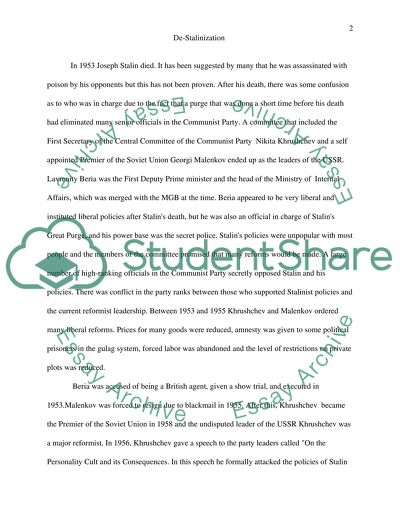Cite this document
(“De-Stalinization in the Soviet Union Essay Example | Topics and Well Written Essays - 2250 words”, n.d.)
Retrieved from https://studentshare.org/miscellaneous/1503782-de-stalinization-in-the-soviet-union
Retrieved from https://studentshare.org/miscellaneous/1503782-de-stalinization-in-the-soviet-union
(De-Stalinization in the Soviet Union Essay Example | Topics and Well Written Essays - 2250 Words)
https://studentshare.org/miscellaneous/1503782-de-stalinization-in-the-soviet-union.
https://studentshare.org/miscellaneous/1503782-de-stalinization-in-the-soviet-union.
“De-Stalinization in the Soviet Union Essay Example | Topics and Well Written Essays - 2250 Words”, n.d. https://studentshare.org/miscellaneous/1503782-de-stalinization-in-the-soviet-union.


